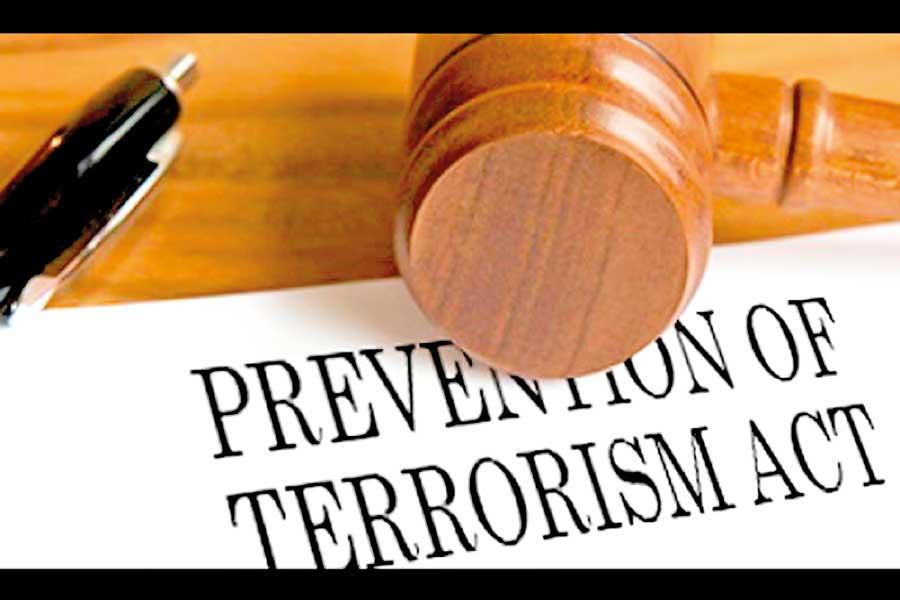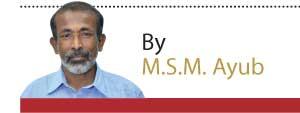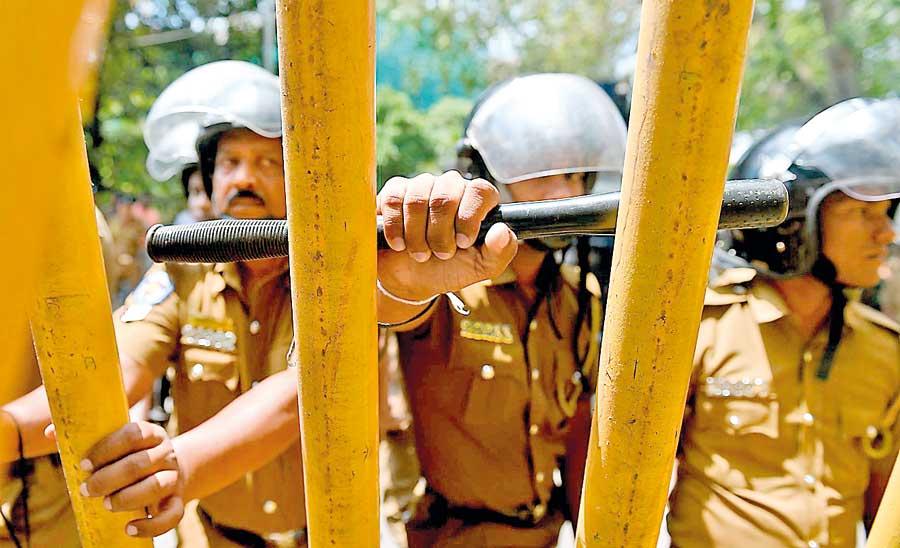Reply To:
Name - Reply Comment

Daily Mirror yesterday reported that President Gotabaya Rajapaksa had directed the police not to use the Prevention of Terrorism Act (PTA) as a shortcut but only if there are clear links to terrorism. Foreign Minister G.L.Peiris had explained the President’s instruction to the local civil society and Non-Governmental Organisations (NGOs) at a meeting held at the Foreign Ministry on Tuesday.
terrorism. Foreign Minister G.L.Peiris had explained the President’s instruction to the local civil society and Non-Governmental Organisations (NGOs) at a meeting held at the Foreign Ministry on Tuesday.
The meeting seems to be a good step in the right direction by the government in its effort to face the challenges emanating from the UN Human Rights Council (UNHRC) and the international human rights organisations, as those international players repose trust on the local civil society and the NGOs in obtaining information about the human rights situation in Sri Lanka. A genuine rapport with these local organisations might help ease the friction between the government and those international outfits.
"This is a common practice in almost every country including those that are exerting pressure on Sri Lanka to repeal PTA"
The PTA has become the primary concern of the UNHRC and the European Union in the recent months when it comes to human rights situation in Sri Lanka. It must be recalled that the report presented at last year’s February /March session of the UNHRC by the UN High Commissioner for Human Rights Michelle Bachelet and the resolution adopted in the European Parliament on June 10 last year with a warning to remove GSP+ concessions to Sri Lanka had stressed the need to amend the PTA, in line with the international laws and best practices.
During the last few UNHRC sessions the government had undertaken to do so and last week an amendment to the PTA of 1979 was presented in Parliament. However, local civil society organisations, Tamil politicians and the international human rights organisations such as the New York based Human Rights watch (HRW) had stated that the amendments are not up to the expectations.
The first step towards rectifying a problem is accepting its existence. And the government has taken that important step by giving clear instructions, according to Minister Peiris, that the “irresponsible use of the PTA must stop.” However, the international players would not be satisfied with just assurances but would monitor how those assurances are put into practice.
The PTA was introduced by the J.R. Jayewardene government with the emergence of Tamil separatist armed groups in the late 1970s. From the beginning some of its highly repressive and draconian sections drew flak from Tamil political parties and the human rights organisations as they give powers to the authorities to detain suspects for a long time, sometimes indefinitely and to use “confessions” by suspects as evidence against themselves.
Laws are needed to counter crimes and terrorism, no doubt and extraction of information from the suspects is a major part of investigations.The motive of detention orders is nothing but to extract statements or “confessions.”Although the law does not permit, this sometimes involves psychologically traumatising the suspects by detaining them for a long time and even using extrajudicial methods like torture. This is a common practice in almost every country including those that are exerting pressure on Sri Lanka to repeal PTA. The stories and images that emanated from the US-run prisons Abu Ghraib in Iraq and the Guantanamo Naval Base attest to it. In fact no criminal or terrorist is prepared to simply reveal information when
just being questioned.
"The PTA has become the primary concern of the UNHRC and the European Union in the recent months when it comes to human rights situation in Sri Lanka"
Yet, even a criminal has human rights which should be protected by the authorities which is a norm accepted internationally. Hence ordinary law provides for the production of a suspect before a court within a day or two. How can one justify detaining a suspect for years under special laws such as the PTA? And how can it be justifiable to use evidence extracted through coercion as evidence against a suspect? These are some of the elements in the PTA which are opposed by the UNHRC and the European Parliament. On June 23 last year Minister Namal Rajapaksa too said in parliament that some people are being remanded for several decades leading to psychological trauma in them. He called for a proper mechanism to address this issue. Justice Minister Ali Sabry also endorsed his statement.
Apart from the highly repressive sections of the PTA, the successive governments have been accused of using the PTA on political and racial grounds and to suppress dissent. Any law can be used in this manner. It must be recalled that the ICCPR law had once during the previous regime been used even against an innocent woman who had worn a frock with a picture of a cartwheel printed on it, claiming that it was the Dharma Chakra.
It was almost eight months since Ministers Namal Rajapaksa and Ali Sabry denounced the detaining of people under the PTA for years and decades, and the UN and the international human rights groups are still decrying that law, but no action has been taken to release them, at least on bail. The amendment to the PTA that was presented in Parliament last week too does not seem to have addressed the concerns of the international human rights organisations that have huge influence over the UNHRC.
How far have the PTA and other repressive laws contributed to counter terrorism? It has not deterred Tamil youth from joining the LTTE though it was originally meant to crush specifically the LTTE. Even now the LTTE is being venerated in the north even publicly during commemorations of those who perished in the war. This does not mean that a country does not need counter-terrorism laws. What the UNHRC stresses is to amend the PTA in line with the international standards which the government has also accepted.
"Although the law does not permit, this sometimes involves psychologically traumatising the suspects by detaining them for a long time and even using extrajudicial methods like torture"
One cannot understand as to why the authorities cannot release the PTA detainees arrested or surrendered who have been detained for years and decades as suggested by Minister Namal Rajapaksa, at least against the backdrop of the resolutions adopted by the UNHRC and the European Parliament. If somebody contends that they cannot be released as they have been once members of a dreaded terrorist group, we then are reminded of the leaders of the same terror group who are at large now, winning the trust of the leaders of the current government.
Those leaders did not denounce violence in good faith. Can we expect KP, the person who was selected to lead the LTTE after Velupillai Prabhakaran was killed at the Nandikadal lagoon to do an innocent job like running a children’s home, giving up his separatist cause and businesses, had he not been kidnapped by the Sri Lankan intelligence officials from a hotel in Malaysia in May 2009? Would Vinayagamoorthy Muralitharan alias Karuna Amman have joined the Sri Lanka Freedom Party (SLFP) under Mahinda Rajapaksa, abandoning his fight for a separate Tamil State in 2004, had he not earned Prabhakaran’s wrath?
Thus, there are ways to ease the pressure from the UNHRC and the EU.
